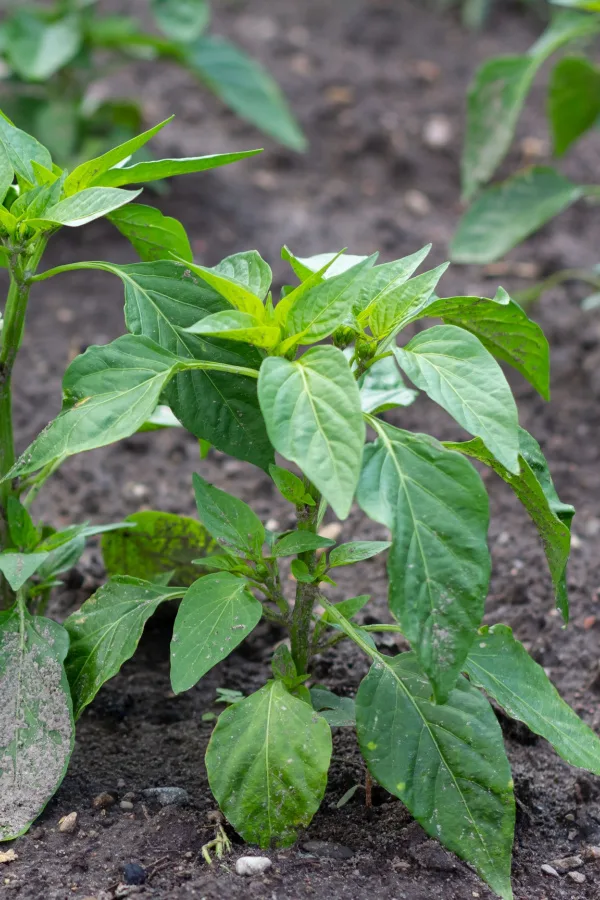Selecting the Best Fertilizers for Peppers: Specialist Recommendations
Exactly How Fertilizers Play a Critical Duty in Growing Abundant and healthy Pepper Crops
Fertilizers serve as the backbone of effective pepper growing, supplying a tactical strategy to nurturing the soil and cultivating ideal plant development. The complex dance in between necessary nutrients and the pepper plants' physiological procedures highlights the pivotal function that fertilizers play in making certain an abundant harvest.
Relevance of Nutrient-Rich Plant Foods
The utilization of nutrient-rich plant foods plays a critical duty in enhancing the performance and high quality of pepper plants in modern farming methods. Pepper plants call for a balanced mix of necessary nutrients to flourish and generate high yields of high quality fruits. Potassium, phosphorus, and nitrogen are primary nutrients that are vital for the development and development of pepper plants. Nitrogen aids in leafy green development and total plant vitality, phosphorus supports root development and flower production, while potassium contributes to illness resistance and fruit top quality.
Inadequate degrees of these nutrients can lead to stunted development, decreased yields, and vulnerability to illness (best fertilizers for peppers). Nutrient-rich fertilizers offer a targeted service to guarantee that pepper plants receive the necessary elements for optimum development and performance. Furthermore, these fertilizers help improve dirt fertility with time, producing a sustainable environment for lasting pepper farming
Enhancing Plant Development and Development
To optimize plant development and advancement in pepper crops, strategic application of nutrient-rich plant foods is crucial. Plant foods play a vital function in enhancing the overall wellness and efficiency of pepper plants by providing them with essential nutrients that might be lacking in the dirt. Nitrogen, potassium, and phosphorus are key macronutrients needed in large amounts by peppers for robust development. Nitrogen aids in leafed eco-friendly development and general plant vitality, phosphorus supports origin advancement and blossom formation, while potassium adds to illness resistance and fruit top quality.
Iron, for circumstances, is essential for chlorophyll production, which is necessary for photosynthesis and overall plant growth. Zinc plays a critical role in enzyme activity and hormone synthesis, affecting plant development and growth at a cellular level.

Boosting Illness Resistance With Plant Foods
By tactically integrating targeted fertilizers, farmers can strengthen the condition resistance of pepper plants, ensuring ideal plant health and wellness and productivity. Fertilizers having crucial nutrients like nitrogen, phosphorus, and potassium play a crucial role in reinforcing pepper plants' immune systems, making them a lot more resilient to numerous conditions.

Maximizing Pepper Return With Fertilization
Making use of a balanced fertilizing technique is key to attaining maximum pepper return and guaranteeing optimal plant productivity. By giving peppers with the ideal nutrients at the correct time, farmers can dramatically improve their return capacity. Phosphorus, nitrogen, and potassium are essential aspects for pepper growth, with nitrogen helping in fallen leave and stem advancement, phosphorus sustaining root growth and flower formation, and potassium advertising overall plant health and wellness.
To make the most of pepper return, it is crucial to carry out dirt examinations to identify existing nutrition degrees and identify any type of shortages that require to be attended to. Based on these results, farmers can establish a customized fertilizing plan that meets the certain demands of their pepper plants. Additionally, appropriate fertilization strategies such as split applications throughout the expanding period can ensure continuous nutrition accessibility for the plants.

Lasting Plant Food Practices for Peppers
In considering sustainable fertilizer methods for peppers, it is critical to concentrate on long-term soil health and environmental stewardship in conjunction with taking full advantage of plant efficiency. Lasting fertilizer methods aim to preserve or enhance soil fertility while reducing unfavorable environmental impacts. One vital method is the use of organic fertilizers such as compost, manure, or cover plants, which not just supply crucial nutrients to the peppers yet additionally add to soil structure and microbial activity. These natural alternatives assist develop raw material in the dirt, boosting its capability to keep water and nutrients, thus supporting lasting plant health and wellness and resilience.
Furthermore, accuracy agriculture techniques, such as dirt testing and targeted nutrient applications, can aid enhance pop over to this web-site plant food usage, guaranteeing that peppers receive the nutrients they require without excess runoff right into waterways. This not just benefits the atmosphere by reducing air pollution but additionally saves expenses for farmers by minimizing waste. By taking on sustainable plant food practices, pepper cultivators can guard the health and wellness of their plants, soil, and surrounding ecosystems for future generations.
Final Thought
Finally, fertilizers are necessary for cultivating bountiful and healthy pepper plants. best fertilizers for peppers. They provide essential nutrients for plant development and growth, increase disease resistance, and maximize yield. By implementing sustainable fertilizer practices, farmers can make sure the lasting health of their pepper plants and add to a more reliable and environmentally-friendly farming system
The intricate dance in between important nutrients and the pepper plants' physiological processes highlights the essential role that fertilizers play in making certain a plentiful harvest.To optimize plant development and image source advancement in pepper plants, tactical application of nutrient-rich plant foods is necessary. Fertilizers play an essential duty in enhancing the overall health and performance of pepper plants by giving them with crucial nutrients that may be doing not have in the soil.By purposefully integrating targeted plant foods, farmers can bolster the illness resistance of pepper crops, making find out certain optimum plant health and wellness and efficiency. Plant foods consisting of necessary nutrients like phosphorus, potassium, and nitrogen play a crucial role in reinforcing pepper plants' immune systems, making them much more resilient to numerous conditions.